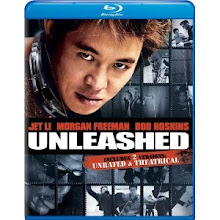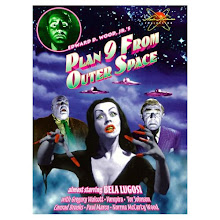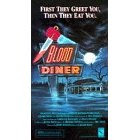by Jason Pyles
I don’t use the term lightly, but even when I first saw “Adaptation.” as a mere film fan (and not a film student), I thought it was a masterpiece. Now, seeing it again, I have no doubt. It is one of my all-time favorite films. “Brilliant” is a word that readily springs to mind. It just so happens that I have been studying screenwriting lately, which certainly enhanced my experience with this film during this second viewing.
First of all, I should note some things, in case any readers of our blog aren’t aware:
1.) Charlie Kaufman is an actual screenwriter; indeed, the screenwriter of this film, which is, in fact, an adaptation of Susan Orlean’s book, “The Orchid Thief.”
2.) Donald Kaufman, Charlie’s twin brother, is not a real person. And though he is fictitious, at the end of the credits, there is an “In loving memory of Donald Kaufman” dedication. Funny.
3.) Robert McKee (played here by Brian Cox) is an actual lecturer on screenwriting, and coincidentally, I’ve been studying from the same book shown in the movie. And though Kaufman seems to be paying proper respect to McKee, at the same time, the design of the film itself smacks in the face of McKee’s by-the-book instruction — like some smart-alec antics executed mockingly by a too-cute genius. Anyway, all kinds of little in-joke treasures for screenwriters.
4.) And yes, the criminal acts depicted in the film are fiction. I think it’s admirable, as Andy mentioned, that they permitted such an unorthodox adaptation of this book. But after “Being John Malkovich,” Kaufman obtained substantial trust and freedom.
Obviously, what is truly most masterful about “Adapation.” is that the film itself is an “ouroboros” (the snake that eats itself), which is also referenced directly in the film. Astoundingly, the film’s structure is designed such that the story is “written” behind its own telling. Now, this might not seem like a big deal at first. After all, how many people live through the events of life — then write them down afterward. But that’s not exactly the situation in “Adaptation.” In this film, we see and hear events that come around to be written by the film’s “internal screenwriter” (aka the character onscreen), and yet, it is all an accurate representation of the actual screenwriter himself writing this very film.
So, in short, Kaufman basically made a film about his making of this film, which is bizarre, considering that it is a chicken-or-the-egg paradox. In this snake-eating-itself circle, where did he ever jump in to begin?
If you’d really like to have your mind blown, Charlie Kaufman’s trick in “Adaptation.” is carried on to the point of perversion in his bizarre film, “Synecdoche, New York,” where the self-reflective, self-awareness of the lead character becomes nothing short of overwhelming.
Looking over Kaufman’s filmography, one can quickly see that Kaufman is, without question, one of the most innovative screenwriters in filmdom. And I will write it a third time: “Adaptation.” is a masterpiece.






























































3 comments:
synecdoche was a train wreck. closest i've ever come to walking out on a film.
also, have you seen "the room"? it's supposed to be the worst movie of the last decade - it's achieved rocky-horror-esque cult followings in LA. i've seen bits online. it's horrible. i'd be interested in yours and andy's takes. :)
Yes, though I won't deny Charlie Kaufman of his brilliance, I have to admit that I also hated watching "Synecdoche, New York." It probably makes sense on some sort of philosophical level, if you take time to sketch it all out, but that's just not entertainment to me.
I have not seen "The Room" yet, but I've heard of its notoriety. We'll check it out next. Thanks for the recommendation.
Post a Comment